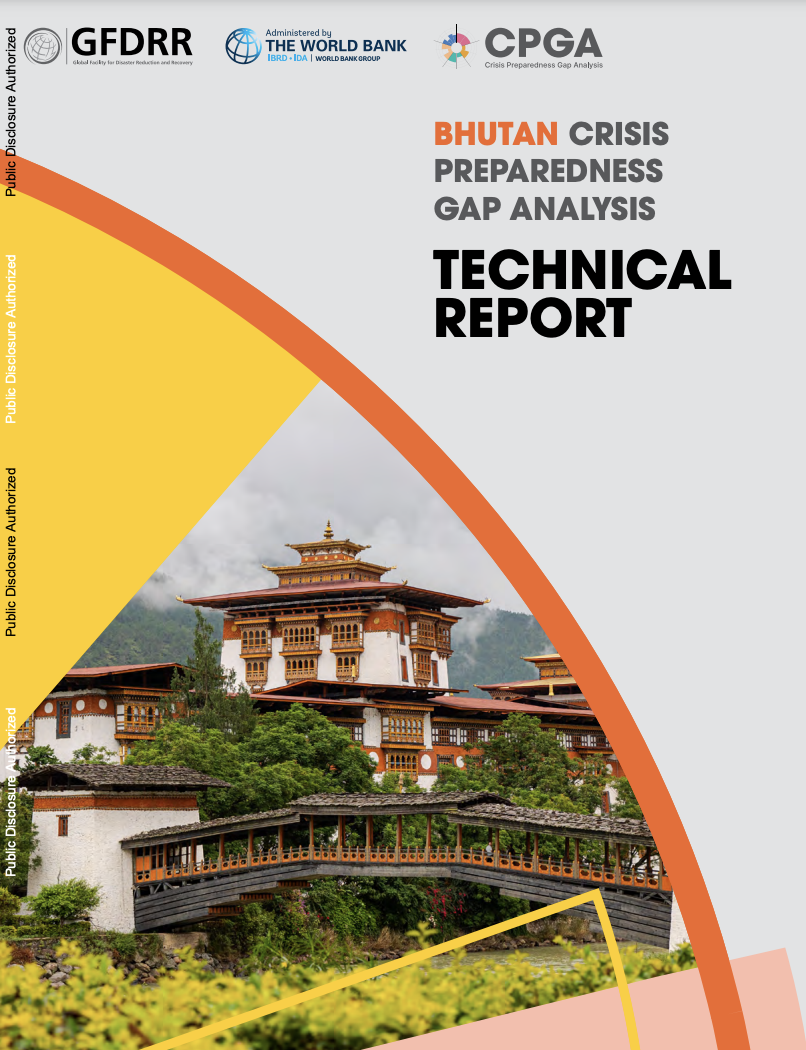Crisis preparedness requires a comprehensive and cross-sectoral approach to risk management with targeted interventions across a range of different sectors. To provide a holistic assessment of preparedness, the crisis preparedness gap analysis (CPGA) isolates five core components of crisis preparedness. These include legal and institutional foundations, understanding and monitoring of risks, financial preparedness, primary response, and social and livelihood support. The CPGA builds on and supplements a range of sector- and crisis-specific diagnostic tools. It does not replace or duplicate the in-depth assessments. This technical report presents gaps and opportunities to strengthen the capacity of the Royal Government of Bhutan (RGoB) to prepare for crisis events in an effective and timely manner. It accompanies the CPGA Bhutan briefing note, providing further details on findings and entry points across the five components of crisis preparedness. The note is intended to inform policymakers to integrate crisis preparedness across different sectors.
Bhutan Crisis Preparedness Gap Analysis
Technical Report
January 14, 2025

